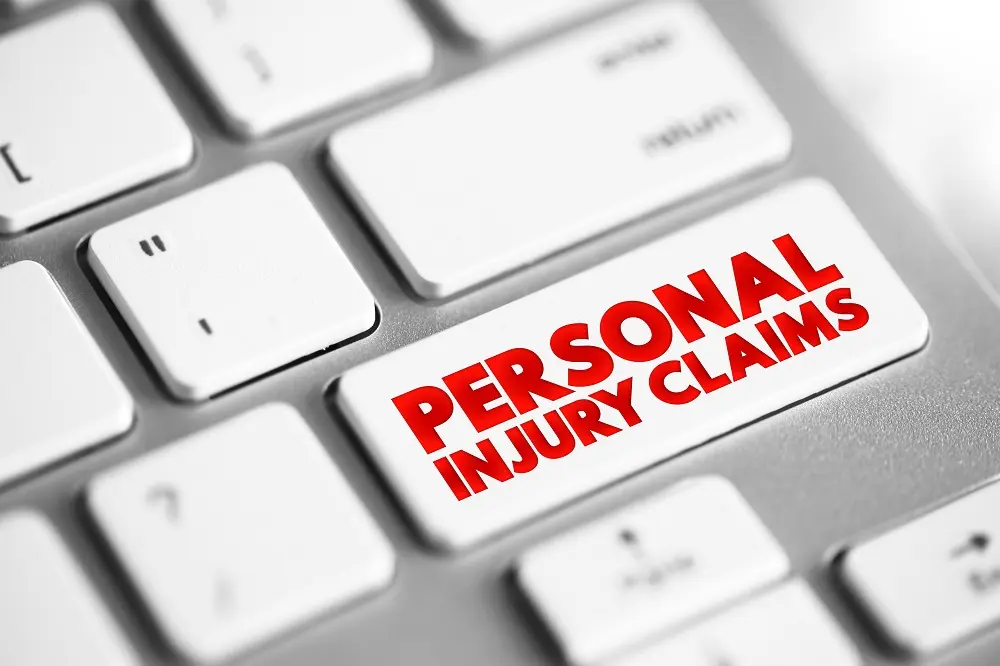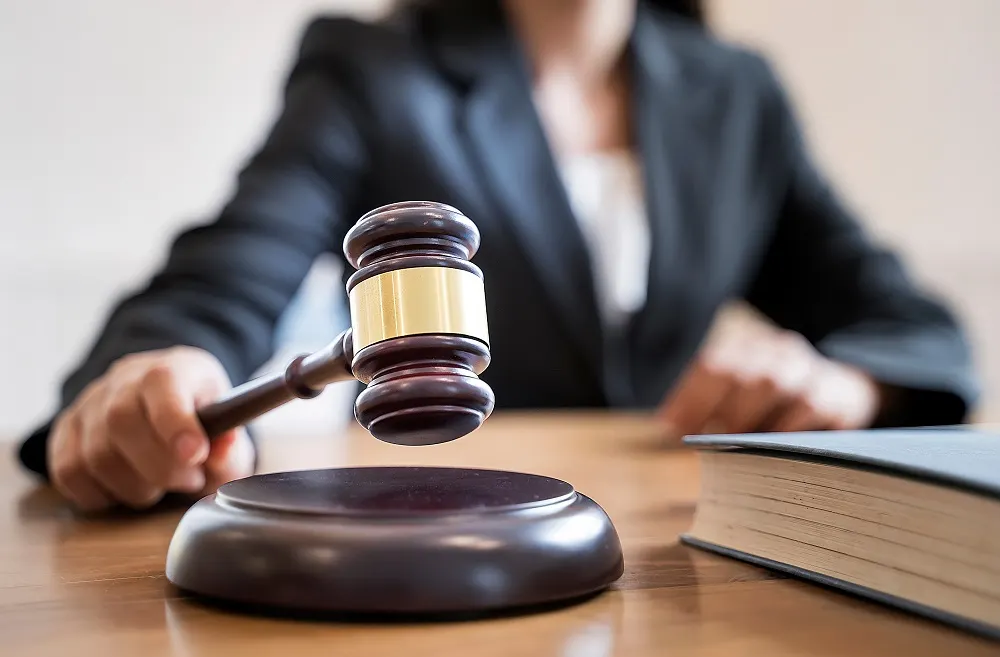After sustaining injuries in an accident, receiving that first insurance settlement offer can feel like a pivotal moment. But what happens when you reject an insurance settlement offer? Many injured victims across Louisiana face this exact situation when insurance companies present lowball settlement offers that fail to cover their actual damages.
In this blog post, our personal injury lawyers will explain this complex legal process. If you’re ready to maximize your settlement and achieve results that truly reflect the losses you’ve suffered, contact our team at Rice & Kendig.
Why Insurance Companies Make Initial Settlement Offers
Insurance companies try to settle claims quickly and cost-effectively. When you file an insurance claim, the insurance company's primary goal is to minimize its financial exposure. Insurance adjusters are trained to evaluate claims conservatively and often present initial settlement offers that fall well below the actual value of your personal injury case. No matter how nice they seem on the phone, adjusters are not your friends. Their main job is to pay you as little as possible, or even nothing at all.
These early offers serve several purposes for insurance providers:
- Limiting exposure to larger claims: By encouraging quick acceptance of initial offers, insurance companies avoid the possibility of higher settlements that might emerge through detailed investigation and negotiation.
- Reducing administrative costs: Prolonged settlement negotiations require significant resources. Insurance companies prefer to close claims quickly to minimize these ongoing expenses.
- Testing your resolve: Many initial settlement offers are designed to gauge whether you'll accept a lower amount without understanding the full extent of your damages or legal rights.
- Avoiding legal action: Insurance companies know that personal injury lawsuits can result in significantly higher awards than settlement offers. By presenting seemingly reasonable initial offers, they hope to avoid the uncertainty and expense of litigation.
Valid Reasons to Reject an Insurance Settlement Offer

Several circumstances justify rejecting an insurance settlement offer from the insurance company:
Insufficient Coverage of Medical Expenses
If the settlement offer doesn't fully cover your medical bills, ongoing medical treatment, or future medical costs, rejection may be necessary. This is particularly important when you haven't reached maximum medical improvement and may require additional medical care.
Inadequate Compensation for Lost Income
When injuries prevent you from working, you deserve compensation for lost wages and potential loss of earning capacity going into the future. If your injuries and subsequent disability are serious enough and are permanent, ongoing wage loss could be up to your retirement age. Settlement offers that fail to account for these economic losses often warrant rejection.
Failure to Address Pain and Suffering

Louisiana law recognizes that accident victims deserve compensation for physical pain, emotional distress, and diminished quality of life. Settlement offers that ignore these non-economic damages are frequently inadequate.
Disputes over Liability
If the insurance company disputes fault or attempts to assign partial blame to you through Louisiana's comparative fault system, you may need to reject their offer and pursue further legal action.
Premature Settlement Timing
Accepting a settlement before understanding the full extent of your injuries can be devastating. If you haven't reached maximum medical improvement or if future complications are possible, rejecting the initial offer may be prudent.
What Happens When You Reject an Insurance Settlement Offer
Rejecting a settlement offer doesn't end your claim — it often strengthens your negotiating position. Here's what typically happens after you reject an insurance settlement:
Continued Settlement Negotiations
Most insurance companies will respond to rejection with revised offers. This back-and-forth negotiation process can continue for weeks or months, with each side presenting counteroffers based on new evidence or changing circumstances.
Your personal injury attorney will craft a formal demand letter explaining why the initial offer was inadequate and presenting evidence supporting a higher settlement amount. This letter typically includes:
- Detailed medical records and treatment plans
- Documentation of lost wages and earning capacity
- Evidence of pain and suffering
- Expert testimony when appropriate
- Photographs and accident reconstruction evidence
Alternative Dispute Resolution Methods
When direct negotiations stall, parties often turn to alternative dispute resolution:
- Mediation: A neutral third party facilitates discussions between you and the insurance company to reach a mutually acceptable agreement. Mediation is non-binding, meaning either party can walk away if no deal is reached.
- Arbitration: A more formal process where an arbitrator reviews evidence and makes a binding decision. Some insurance policies require arbitration before litigation can proceed.
Filing a Personal Injury Lawsuit

If settlement negotiations fail to produce a fair settlement, your lawyer may recommend filing a personal injury lawsuit. This formal legal action demonstrates your commitment to pursuing full and fair compensation through the court system.
The Negotiation Process After Rejection
Effective negotiation requires strategy, preparation, and persistence. When you reject an insurance settlement offer, your personal injury attorney will typically:
Strengthen Your Case with Additional Evidence
- Gather comprehensive medical records from all treating physicians
- Obtain expert medical opinions on future treatment needs
- Document the full extent of property damage
- Collect witness statements and accident scene evidence
- Calculate the complete economic impact of your injuries
Present a Compelling Counteroffer
Your attorney will craft a detailed counteroffer that addresses the shortcomings of the initial settlement offer. This presentation will include:
- A thorough explanation of your injuries and their impact on your life
- Documentation of all medical expenses and future medical needs
- Evidence of lost wages and diminished earning capacity
- Calculations for pain and suffering damages
- Supporting evidence from medical experts and other professionals
Engage in Strategic Communication

Personal injury attorneys understand how to communicate effectively with insurance adjusters. They know when to be aggressive, when to compromise, and how to present information in ways that maximize your settlement potential.
Factors That Influence Settlement Negotiations
Several key factors affect the negotiation process after rejecting a settlement offer:
Strength of Your Evidence
Compelling evidence of negligence, clear documentation of your injuries, and thorough proof of your damages strengthen your negotiating position significantly.
Quality of Legal Representation
Insurance companies take settlement demands more seriously when they come from experienced personal injury attorneys with proven track records of successful litigation.
Your Willingness to Go to Trial

Insurance companies often offer better settlements to plaintiffs who demonstrate readiness to pursue their claims through trial if necessary.
Policy Limits and Coverage
The at-fault party's insurance policy limits may cap potential settlements, regardless of your actual damages. Understanding these limitations helps set realistic expectations.
Comparative Fault Considerations
Louisiana's comparative fault system means that any responsibility assigned to you for the accident will reduce your final settlement. This factor significantly influences negotiation strategies.
Statute of Limitations in Louisiana
Every state has a Statute of Limitations (SOL), or a strict time limit, for filing a lawsuit. Missing this deadline means you can be permanently barred from recovering any money for your injuries. Due to a recent law change, Louisiana's timeline depends on the date of the injury.
Here is what you need to know:
- For injuries occurring before August 1, 2025: You have a one-year deadline to file a lawsuit.
- For injuries occurring on or after August 1, 2025: The deadline is extended to two years.
- Two years for wrongful death claims from the date of death.
It is critical to have your case reviewed immediately to ensure your deadline is protected.
Common Mistakes to Avoid in Case of Insurance Settlement Rejection

Several common errors can jeopardize your settlement negotiations:
- Negotiating without legal representation: Insurance companies have lawyers protecting their interests. You deserve the same level of professional advocacy.
- Missing critical deadlines: Louisiana's statute of limitations creates firm deadlines that cannot be extended. Missing these deadlines eliminates your legal options entirely.
- Failing to document damages: Incomplete documentation of your injuries, expenses, and losses weakens your negotiating position significantly.
- Sharing information on social media: Insurance companies monitor social media accounts for evidence that contradicts injury claims. Avoid posting about your activities or condition online.
At Rice & Kendig, we're here to help you avoid these common pitfalls to significantly strengthen your position and increase the likelihood of a successful outcome.
The Best Chance to Win Is with Rice & Kendig
The key to successful settlement negotiations lies in understanding your rights, preparing compelling evidence, and working with experienced legal counsel who can navigate the complex insurance landscape on your behalf. Contact Rice & Kendig Injury Lawyers for a free case review and achieve a favorable outcome.
Remember: you have options beyond accepting inadequate settlement offers.
Facing a Lowball Settlement Offer? We Can Help.
Rice & Kendig's experienced legal team in Shreveport has recovered millions for injury victims across Louisiana. Call (318) 222-2772 for your free consultation.





